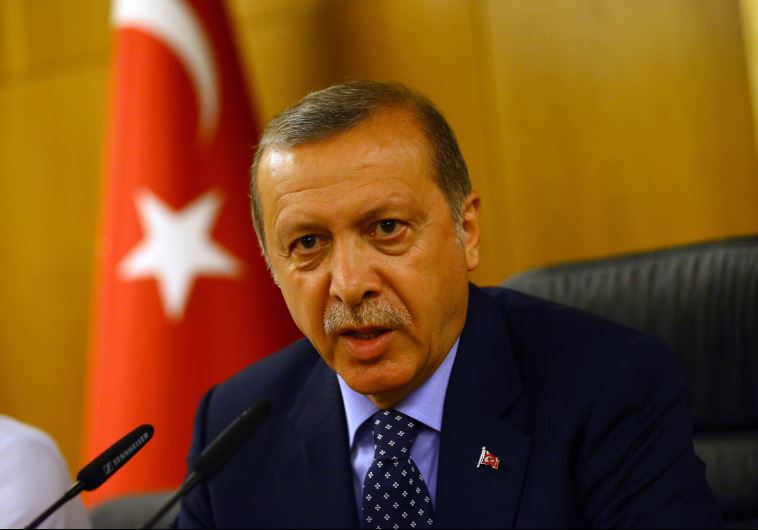Turkey's Erdogan: Israeli settlement push an 'absolute provocation'
Turkish president makes comment in a speech in Bahrain, while on an official visit.
 Turkish President Tayyip Erdogan addresses during an attempted coup in Istanbul, Turkey July 16, 2016.Updated:
Turkish President Tayyip Erdogan addresses during an attempted coup in Istanbul, Turkey July 16, 2016.Updated: